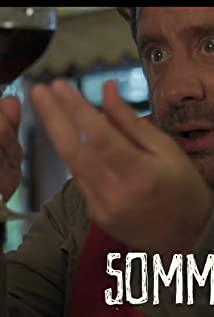Unlike films that try to grab the audience's attention in the first three minutes, this Berlin Silver Bear Gloria gets better as it gets closer to the end. If you are fortunate enough to endure the lengthy, flat story of the first half, from the second third of the film onwards, you can encounter wonderful details and the heroine's inner explosive performance everywhere.
"Gloria" is an impossible subject matter. It belongs to a bland life-streaming film, but it is still the life of two old people. Gloria, 58, divorced for ten years, wears giant glasses and works a boring clerical job. In her spare time, she often goes to dance parties of her peers to relieve her loneliness. At a dance, she met Rudolph, who was about her own age, and who had just been divorced for a year. The two quickly fell in love. Everything was going well, except that when they were dating, Rudolph would often get calls from his daughter who would cry, ask him for money, or tell him about Rudolph's ex-wife. Rudolph never mentioned Gloria's existence to him. This became an awkward psychological barrier between them. In order to further the relationship, Gloria invited Rudolph to her son's birthday party, but in the middle, Rudolph left without saying goodbye, and the real reason was because of her daughter's phone call for help. Gloria decides to break up, but Rudolph tries to save it. The two go on vacation together, but the romantic atmosphere is broken again by the daughter's phone call, and Rudolph suddenly disappears again. In the end, an exhausted Gloria gave up on this short-lived love after experiencing an inner struggle.
This Chilean film does not emphasize the special background of the country's history and politics, but only tells a story of universal significance. The main line is a beautiful but helpless twilight love, but in fact, around this clue, those furry textures in life are slowly revealed through details. This is not just a love, it is more about the triviality, helplessness, hope and loss, persistence and abandonment of everyone in life. Gloria lacks the most basic and effective communication with her son and daughter, just because blood keeps each other connected, but they all seem to be acting out family affection. This is actually a typical sample of modern family relationships.
About inner loneliness and interpersonal alienation, the film has a clever expression. Gloria's neighbors were fighting every day, yelling and smashing things. This has become a mirror image of her own life. The neighbor's life seems to be violent and chaotic, while her seemingly peaceful and tidy life is actually another kind of repressed cold violence. Her middle-class life is nothing more than a self-delusional illusion, everything seems to be full of order, but in fact it's all in vain. All she has are estranged children and a new lover who doesn't want to take responsibility. All the characters in the film and their state of existence are on the verge of falling, becoming fragile items that need to be carefully protected.
The film is full of seemingly random but meaningful little details. Alcohol, cigarettes and marijuana, these three addictive substances form a progressive relationship in Gloria, reflecting her heart of giving up resistance. Near the end of the movie, a busker appears, dancing skillfully with a skeleton-shaped doll. Gloria loves dancing, which is almost her only way of socializing, and she has a relationship because of it. But when she saw the dancing skeleton, she seemed to be facing herself. Without the cover of the body and clothes, dancing turned out to be just a continuous movement that was so lonely. There was flattery, absurdity and hilarity in those movements. Dance is at the heart of the film. In addition, there are still many surprising and inspirational details in the film. For example, the white peacock that opened the screen alone, the instinctive action of the animal courtship was so sad and decisive, it became another mirror image of Gloria, just like the dancing skeleton. The nude scenes of the two male and female protagonists are breathtaking, their plump, flabby, wrinkled bodies still exude vitality against time at the moment of entanglement. Such a picture can never be for fun, it will only make more people unable to bear to look directly. But that's part of the truth of life.
Ultimately, Gloria chose a dramatic way to end her relationship with Rudolph. She shoots Rudolph with a paintball gun, the game they played together on their first date. Rudolph said that men like war games. And in the end a woman ends their past in a way that a man likes.
Life cannot be summed up in one sentence. The excellence of "Gloria" is that it perfectly presents the polyphonic characteristics of life itself, the multiple, ambiguous emotions and trivial matters that cannot be said or resolved, that is the real life, with moments of comfort and long-lasting loneliness.
View more about Gloria reviews










